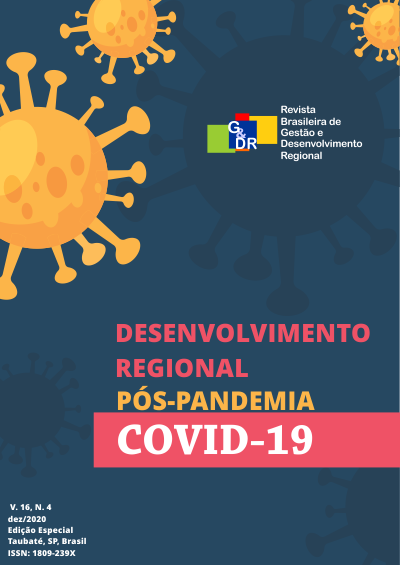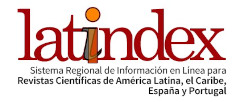TERRITORIAL DEVELOPMENT, COVID-19 AND THE NEW STRATEGIES OF PRODUCTION, COMMERCIALIZATION AND FOOD CONSUMPTION OF FAMILY FARMING IN THE SOUTHERN REGION OF RIO GRANDE DO SUL
Keywords:
Territorial development. Family farming. Covid-19. Food.Abstract
The article presents the main changes generated by the Covid-19 pandemic in family farming in the southern region of RS. The objective is to analyse how family farmers have been affected and have responded to the health, economic and food crises resulting from the changes brought about by the new coronavirus. The argument defended is that the effects generated by the pandemic may open opportunity for the resumption of territories as the main dimension for rural development processes. Data collection was based on 21 semi-structured interviews with actors linked to family farming. Despite the difficulties imposed on health, production, marketing and consumption of food, the data show a leading role of local actors and organizations in facing the pandemic. In particular, shows how these actors are building a set of practices and processes that have contributed to the cohesion of the social ties, in maintaining the economic dynamism of the territory and, mainly, in the access to food and nutritional security for its inhabitants. However, for these actions effectively be institutionalized in the long term, they need to be connected to a new territorial development agenda that intersects the sustainability debate with local food systems, as presented in this work.Downloads
Published
2020-12-15
How to Cite
Cassol, A., Vargas, L. P., & Canever, M. D. (2020). TERRITORIAL DEVELOPMENT, COVID-19 AND THE NEW STRATEGIES OF PRODUCTION, COMMERCIALIZATION AND FOOD CONSUMPTION OF FAMILY FARMING IN THE SOUTHERN REGION OF RIO GRANDE DO SUL. Revista Brasileira De Gestão E Desenvolvimento Regional, 16(4). Retrieved from https://www.rbgdr.com.br/revista/index.php/rbgdr/article/view/5990
Issue
Section
Artigos
License
Authors who have their papers accepted and published in the Brazilian Journal of Regional Management and Development must agree to the copyright policy CC BY https://creativecommons.org/licenses/by/4.0/.
If the article is accepted for publication, the copyright is automatically assigned to the Brazilian Journal of Regional Management and Development.
















